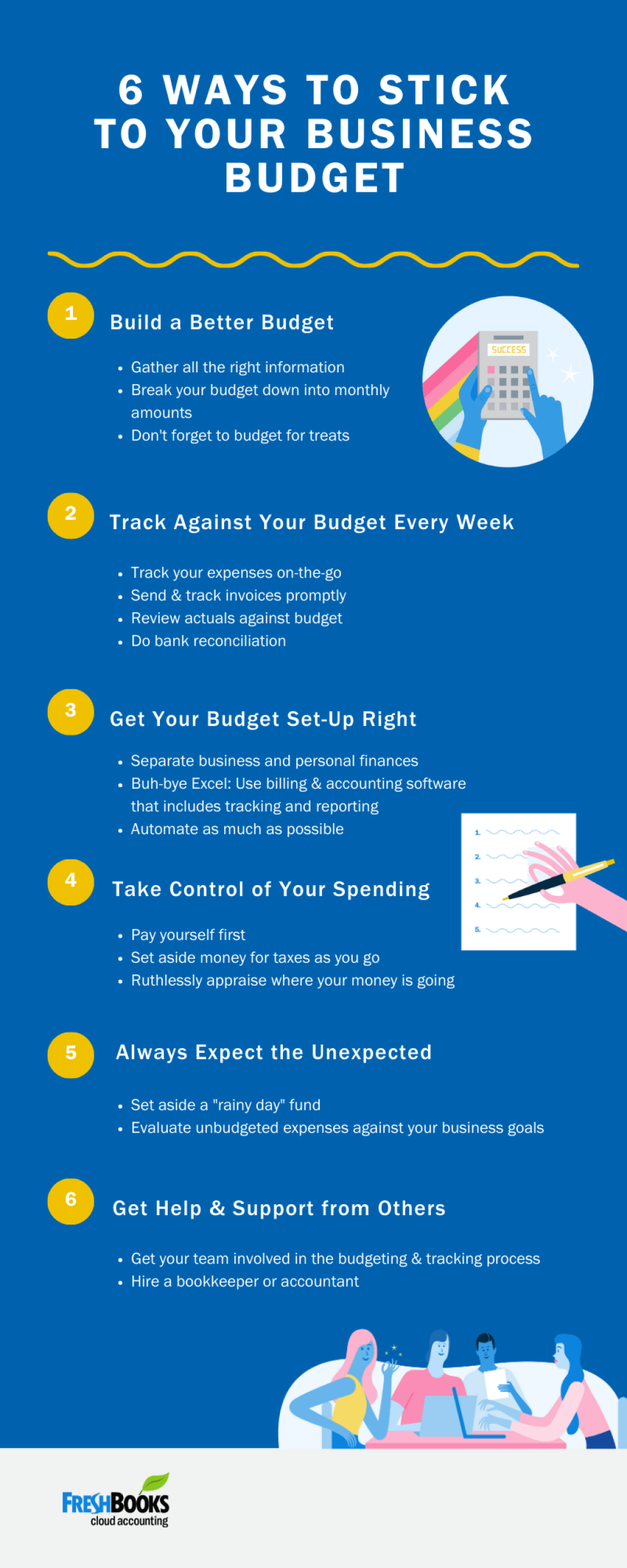5 Budgeting Tips for Business
Introduction
Dear Readers,
Welcome to our article on 5 budgeting tips for businesses. In today’s competitive world, managing finances effectively is crucial for the success of any business. Budgeting plays a vital role in ensuring that your business stays on track and achieves its financial goals. In this article, we will provide you with five valuable tips to help you budget wisely and make informed financial decisions. Let’s dive in!
Overview of Budgeting Tips

Image Source: barbarafriedbergpersonalfinance.com
Before we delve into the details, let’s have a look at the table below to get an overview of the five budgeting tips for business:
Tip
Description
1. Track Your Expenses
Learn how to monitor and categorize your expenses.
2. Set Realistic Goals
Establish achievable financial targets for your business.
3. Prioritize Essential Expenses
Differentiate between necessary and discretionary expenditures.

Image Source: freshbooks.com
4. Create a Contingency Plan
Prepare for unforeseen financial challenges.
5. Regularly Review and Adjust
Continuously assess and adapt your budget as needed.
What is Budgeting?
Budgeting is the process of planning and allocating financial resources to achieve desired goals. It involves estimating income, setting expenditure limits, and monitoring financial performance. Effective budgeting allows businesses to optimize their resources, identify potential savings, and make data-driven decisions.
Who Benefits from Budgeting?
Every business, regardless of size or industry, can benefit from budgeting. Whether you are a startup entrepreneur or a seasoned business owner, implementing a budgeting strategy helps ensure financial stability and supports long-term growth. Budgeting is especially crucial for businesses aiming to maximize profitability, manage cash flow effectively, and make strategic investments.
When Should You Start Budgeting?
The ideal time to start budgeting is when you first establish your business or during the planning stages of a new financial year. However, it is never too late to implement budgeting practices. If you haven’t started budgeting yet, now is the time to take control of your finances and set your business up for success.
Where Can You Implement Budgeting?
Budgeting can be implemented across various areas of your business, including but not limited to:
Operational expenses
Marketing and advertising
Employee salaries and benefits
Inventory and supplies
Capital expenditures
By budgeting in these areas, you can gain a comprehensive understanding of your business’s financial health and effectively allocate resources to drive growth.
Why is Budgeting Important?
Budgeting is important for several reasons:
Financial Control: Budgeting enables you to have better control over your business’s finances by monitoring expenses and income.
Goal Setting: It helps you set realistic financial goals and track your progress towards achieving them.
Decision Making: A well-planned budget provides you with the necessary information to make informed decisions about investments, cost-cutting measures, and expansion plans.
Risk Mitigation: By creating a contingency plan, budgeting helps you prepare for unforeseen financial challenges and minimize risks.
Resource Optimization: Through effective budgeting, you can optimize the allocation of resources, ensuring that they are used efficiently and effectively.
How Can You Implement Budgeting?
Implementing budgeting in your business involves the following steps:
Set Financial Goals: Determine your short-term and long-term financial goals.
Analyze Your Current Financial Situation: Evaluate your current financial position, including income, expenses, and debt.
Create a Budget: Develop a detailed budget by categorizing your income and expenses.
Monitor and Track: Continuously monitor your actual income and expenses against your budget to identify any discrepancies.
Adjust as Needed: Regularly review your budget and make necessary adjustments to align it with your business’s evolving needs and goals.
Seek Professional Advice: Consider consulting with a financial advisor or accountant to gain expert insights and guidance.
Advantages and Disadvantages of Budgeting
Like any business practice, budgeting has its advantages and disadvantages. Let’s explore both:
Advantages of Budgeting
1. Financial Discipline: Budgeting promotes discipline in financial management, ensuring that resources are utilized wisely.
2. Goal Achievement: By setting specific financial goals, businesses can work towards achieving them efficiently.
3. Improved Decision Making: Budgeting provides businesses with the necessary information to make informed decisions about allocating resources and investments.
4. Resource Allocation: It helps businesses allocate resources effectively, ensuring they are used optimally.
5. Risk Management: Budgeting allows businesses to identify potential financial risks and develop contingency plans accordingly.
Disadvantages of Budgeting
1. Time-Consuming: Creating and monitoring budgets requires time and effort, diverting attention from other areas of the business.
2. Rigidity: Strict adherence to budgets may limit flexibility and hinder adaptation to changing market conditions.
3. Overestimation or Underestimation: Inaccurate estimations of income or expenses can lead to budget deviations and financial challenges.
4. Unrealistic Goals: Setting unrealistic financial goals can demotivate employees and negatively impact morale.
5. Lack of Accuracy: Budgets are based on assumptions and forecasts, making them susceptible to inaccuracies.
Frequently Asked Questions (FAQ)
1. Is budgeting only necessary for large businesses?
No, budgeting is essential for businesses of all sizes. It helps small businesses maintain financial stability and supports growth.
2. Can budgeting help reduce unnecessary expenses?
Yes, budgeting allows businesses to identify unnecessary expenses and allocate resources more efficiently, resulting in cost savings.
3. How often should I review my budget?
It is recommended to review your budget regularly, ideally on a monthly or quarterly basis, to ensure it remains aligned with your business’s goals and financial situation.
4. Is it necessary to create a contingency plan?
Yes, a contingency plan is crucial in case of unexpected financial challenges or emergencies. It helps ensure business continuity and minimizes the impact of unforeseen events.
5. Should I seek professional help for budgeting?
While not mandatory, consulting with a financial advisor or accountant can provide valuable insights and guidance for effective budgeting tailored to your business’s specific needs.
Conclusion
In conclusion, implementing effective budgeting practices is vital for the success and financial stability of any business. By tracking expenses, setting realistic goals, prioritizing essential expenditures, creating contingency plans, and regularly reviewing and adjusting your budget, you can make informed financial decisions and optimize resource allocation. Remember, budgeting requires discipline and adaptability. Start implementing these budgeting tips today and take your business to new heights!
Final Remarks
Dear Readers,
It is important to note that while budgeting is a valuable tool for businesses, it is not a guarantee of success. External factors, changing market conditions, and unforeseen events can still impact your business’s financial performance. The information provided in this article is for educational purposes only and should not be considered as financial advice. It is recommended to consult with professionals or experts in the field to tailor budgeting strategies to your specific business needs. Best of luck on your budgeting journey!